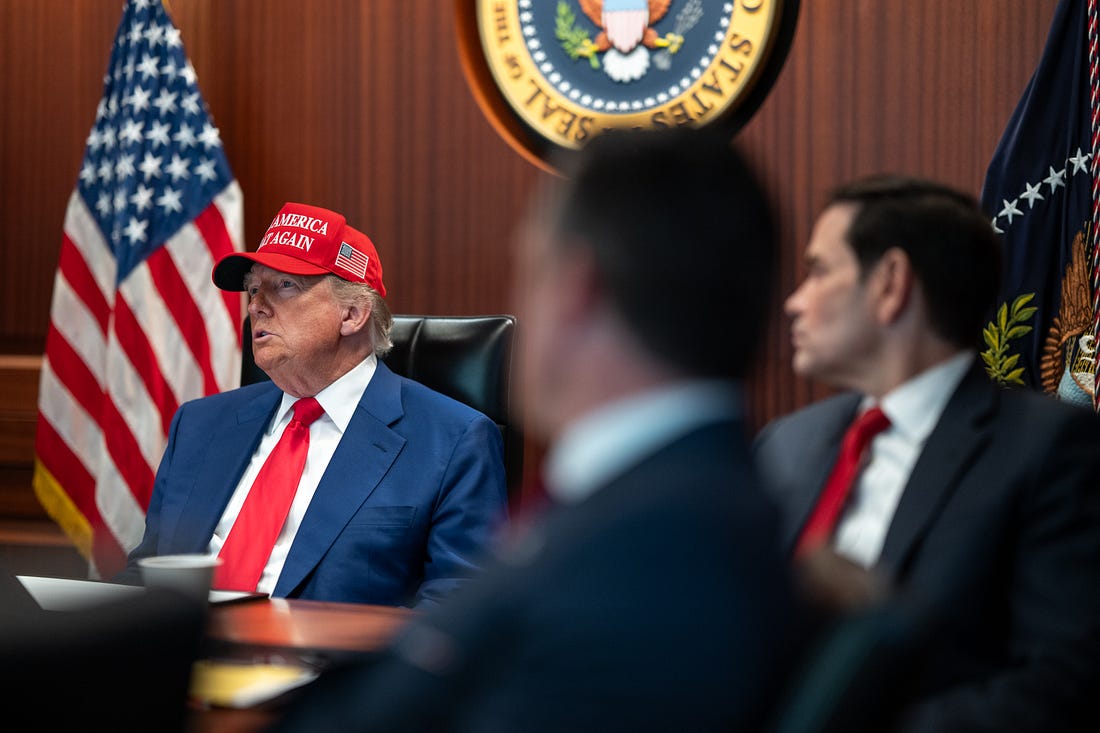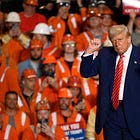|
Trump’s reckless Iran strikes could backfire spectacularly
America has entered few wars with less forethought, less deliberation, and more contempt for the public.
💥 PN is possible thanks to paid subscribers. If you appreciate our fiercely independent coverage of American politics, please support us. 👇
On Saturday evening, Donald Trump announced via a post on his own social media network, Truth Social, that the US military had completed air strikes on nuclear sites in Iran.
In his post, Trump did not explain why the attacks were necessary, and though he said they were “very successful,” he didn’t explain what they had accomplished. Instead, he issued “Congratulations to our Great American Warriors” and bellowed “NOW IS THE TIME FOR PEACE!” — apparently hoping that Iran, or his readers, would not notice that he had just started a war. He finished, as he often does, by signing off with the words, “Thank you for your attention to this matter,” as if he’d signed an office memo reminding people not to wear shorts to work.
Trump’s casual, incoherent declaration of war is of a piece with his casual, incoherent decision to open another potentially catastrophic Middle East conflict. Wars often give the commander in chief a chance to present himself as the voice of the nation and a rallying point for patriotism. Trump’s laziness, and his obvious disdain for the American public and the Constitution, has meant that his call to war has resulted in little enthusiasm, except among his own partisans.
That doesn’t mean the war won’t escalate. Iran is likely to retaliate, Israeli leadership wants more war, and Trump is erratic and largely incapable of restraint. It does mean, though, that a deepening conflict is likely to lead to deepening pushback from Democrats and the public.
If Trump wanted to get a rally around the flag effect to boost his woeful poll numbers, he’s likely to be disappointed.
The staggering, farcical road to war
In 2003, as George W. Bush prepared to invade Iraq, his administration made extensive efforts to convince the US public, the Democratic opposition, and the international community that Saddam Hussein was an imminent threat, had weapons of mass destruction, and that therefore war was justified.
The campaign to consolidate support arguably reached its zenith when widely respected Secretary of State Colin Powell appeared before the UN Security Council and delivered an hour-long presentation listing all the supposed evidence that Iraq was a threat.
“Every statement I make today is backed up by solid sources,” he said. “Clearly, Saddam Hussein and his regime will stop at nothing until something stops him.”


